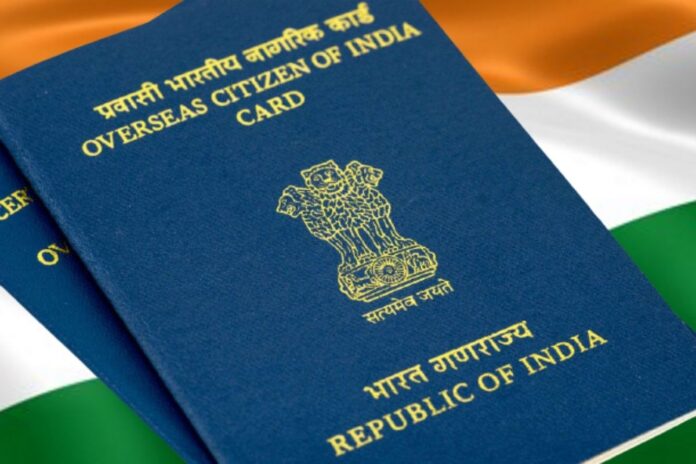-
During the hearing conducted by the Vacation Bench consisting of Justice Dipankar Datta and Justice Pankaj Mithal, the question was raised why Article 32 was invoked
-
The Bench expressed concerns about involving minor children in litigation at such an early stage, stating that it would not be advisable
Two minor Overseas Citizens of India (OCI), who sought permission to represent the country in national and international chess tournaments, had their Writ Petition dismissed by the Supreme Court on June 1. The plea aimed to challenge the Indian government’s policy, issued by the Ministry of Youth Affairs and Sports (MYAS) in 2008 and 2009, which restricts OCI cardholders from participating and representing India in international sports events, as reported by Verdictum.
During the hearing conducted by the Vacation Bench consisting of Justice Dipankar Datta and Justice Pankaj Mithal, the question was raised why Article 32 was invoked. The Bench expressed concerns about involving minor children in litigation at such an early stage, stating that it would not be advisable.
The judges questioned the feasibility of allowing a 7-year-old child to participate in a tournament solely based on a court order. They suggested that if the policy was deemed arbitrary and incorrect, the appropriate course of action would be to approach the court under Article 226, which deals with the power of High Courts.
Advocate Abhimanyu Bhandari, representing the minor petitioners, argued before the court on behalf of the two minor British nationals with OCI cards. He explained that their father is an Indian national, while their mother is a British national. Advocate Bhandari chose to file the petition under Article 32 because different High Courts had taken divergent views on similar matters. He pointed out that the Delhi High Court and the Chandigarh High Court had expressed conflicting opinions on the subject.
The Supreme Court, expressing their reluctance to hear the case, has issued an order stating, “The writ petition filed under Article 32 is dismissed as withdrawn, with the liberty granted to the petitioners to approach the appropriate High Court under Article 226 of the Constitution.”
In the Writ Petition filed by the minors through their father, it was argued that the prohibition on OCI participation in international chess tournaments on behalf of India is discriminatory, arbitrary, illegal, and violates the rights granted to OCI cardholders under Section 7B of the Citizenship Act, 1955, in conjunction with the Constitution of India.
-
The plea emphasised that the petitioners in this case are minors and that they can only exercise their right to choose their citizenship once they reach the age of 18. Until then, they are not entitled to renounce any citizenship they already possess
-
The plea also highlighted that the Supreme Court is currently examining a similar legal question regarding whether Overseas Citizens of India (OCI) can be exempted from the norms of the Foreign Exchange Management Act (FEMA), and the court has recently issued a notice to the Central Government regarding this matter
The petition emphasised that the petitioners, who were previously allowed to participate in national tournaments prior to the contested notifications, have dedicated several years to preparation and training. It asserted that the rights bestowed upon the petitioners cannot be abruptly revoked unilaterally. The plea was filed to safeguard the fundamental rights of OCI cardholders, including the petitioners, under Articles 14, 21, and 21-A of the Constitution of India.
As per Verdictum’s report, the plea argued that the Government of India’s (GOI) 2005 notification, which had previously granted OCI cardholders the same privileges as Non-Resident Indians (NRIs) in terms of economic, financial, and educational benefits, has been unilaterally revoked and curtailed by the GOI’s 2021 notification. This change categorises the petitioners as “foreigners.”
According to the plea, the Government of India’s 2021 notification should not be applied retrospectively but only to individuals who obtained OCI cards after March 4, 2021. This interpretation aligns with a previous judgement by the court in the case of “Anushka Rengunthwar & Ors. v. Union of India & Ors.” on February 3, 2023. Therefore, the plea argued that the petitioners should be treated equally with NRIs in the field of education.
Additionally, the plea emphasised that the petitioners in this case are minors and that they can only exercise their right to choose their citizenship once they reach the age of 18. Until then, they are not entitled to renounce any citizenship they already possess.
The plea also highlighted that the Supreme Court is currently examining a similar legal question regarding whether Overseas Citizens of India (OCI) can be exempted from the norms of the Foreign Exchange Management Act (FEMA), and the court has recently issued a notice to the Central Government regarding this matter.
*******************************************************
Readers
These are extraordinary times. All of us have to rely on high-impact, trustworthy journalism. And this is especially true of the Indian Diaspora. Members of the Indian community overseas cannot be fed with inaccurate news.
Pravasi Samwad is a venture that has no shareholders. It is the result of an impassioned initiative of a handful of Indian journalists spread around the world. We have taken the small step forward with the pledge to provide news with accuracy, free from political and commercial influence. Our aim is to keep you, our readers, informed about developments at ‘home’ and across the world that affect you.
Please help us to keep our journalism independent and free.
In these difficult times, to run a news website requires finances. While every contribution, big or small, will makes a difference, we request our readers to put us in touch with advertisers worldwide. It will be a great help.
For more information: pravasisamwad00@gmail.com




